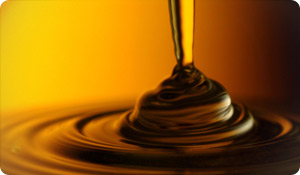
Even if you don't like bees, if you suffer from allergies, you may be grateful for the honey that they make. Some who practice alternative medicine believe that using honey treatment can relieve nasal allergies and bring great relief.
Honey Treatment Benefits
Honey is known for its anti-microbial properties and for being high in antioxidants. Allergy sufferers over the years have also found that honey is a natural way to combat their symptoms. The theory behind this approach is that some forms of raw honey contain small amounts of pollen. Therefore, consuming the honey over time can help to desensitize the body in much the same way as allergy shots. Yet, while some people with allergies swear by the benefits, there's been no clinical evidence to support the effects.
Looking for Evidence
In an attempt to better understand the connection, researchers from the University of Connecticut Health Center looked at a group of 36 adults with nasal allergies and split them into three groups. One group was given local, unpasteurized honey, another was given honey that was collected elsewhere and pasteurized, and the third group was given a placebo.
For ten days, participants tracked their symptoms in a diary and noted the days when their condition warranted using allergy relief medication. Then the results of the three groups were compared to see if there were any significant differences in severity of symptoms.
The findings, which were included in the Annals of Allergy, Asthma, and Immunology in 2002, revealed that researchers couldn't identify any meaningful improvements in allergies among people using either form of honey treatment when compared to each other or to the placebo group.
The Risk of a Honey Allergy Exists
Furthermore, another study, which was published in the French medical journal Allergie et Immunologie in 2006, discovered that it's possible for someone with allergies to have a life-threatening reaction to the honey itself and the pollen it contains. This finding can serve as an important reminder that trying natural allergy remedies can come with some risks for people who are highly sensitive.
What You Can Do
So if you wonder what all this means to you, there are a few take-away messages you can act on. First, if you want to try using honey to treat your allergies, it's always a good idea to talk with your allergist first and make sure he isn't concerned that you could have a serious reaction to this treatment form.
If you're not at a high risk, it may be worth trying to eat local honey on a regular basis despite the lack of clinical evidence that it'll make a big difference in treating your allergies. Even if you don't find relief from your nasal symptoms, honey has also been said to help address a wide range of other health problems, including everything from treating digestive ailments, easing constipation, healing wounds and even reducing cancer risk. Therefore, even if your sneezing doesn't subside, you could end up improving your overall health.
Sources:
Annals of Allergy, Asthma and Immunology
http://www.annallergy.org/article/S1081-1206(10)61996-5/abstract
US National Library of Medicine/National Institutes of Health (NIH)
http://www.ncbi.nlm.nih.gov/pubmed/17274522





